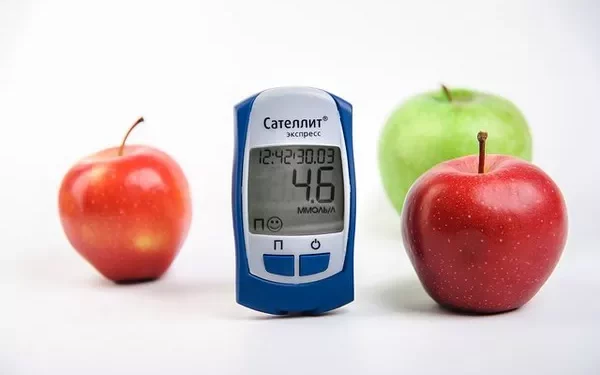Hypoglycemia, commonly referred to as low blood sugar, is a condition characterized by an abnormally low level of glucose in the blood. It is a significant concern, particularly for individuals with diabetes who are on insulin or other glucose-lowering medications. While the condition is well-known among patients with diabetes, its prevalence, risk factors, and impact on daily life are often underestimated. Understanding how common hypoglycemia is, who is most at risk, and how to manage it effectively is crucial for both patients and healthcare providers.
Understanding Hypoglycemia
Hypoglycemia occurs when blood glucose levels fall below the normal range, typically defined as less than 70 mg/dL (3.9 mmol/L). The symptoms of hypoglycemia can vary from mild to severe and may include shakiness, sweating, confusion, dizziness, and in extreme cases, loss of consciousness or seizures.
Types of Hypoglycemia
There are several types of hypoglycemia, each with different causes and implications:
Reactive Hypoglycemia: Occurs after eating, often due to an excessive insulin response following a meal, leading to a rapid drop in blood glucose levels.
Fasting Hypoglycemia: Occurs when blood glucose levels drop due to prolonged periods without food, such as overnight fasting or skipping meals.
Medication-Induced Hypoglycemia: Common in people with diabetes who are taking insulin or oral hypoglycemic agents. The risk increases with factors like incorrect dosing, missed meals, or increased physical activity.
Alcohol-Induced Hypoglycemia: Occurs when alcohol interferes with the liver’s ability to produce glucose, particularly when consumed on an empty stomach or in excessive amounts.
Prevalence of Hypoglycemia
The prevalence of hypoglycemia varies depending on the population studied, the type of diabetes, and the treatment regimen. It is more common in people with type 1 diabetes, but it also occurs in those with type 2 diabetes, particularly those on insulin therapy.
Hypoglycemia in Type 1 Diabetes
Hypoglycemia is a frequent occurrence among individuals with type 1 diabetes due to their reliance on exogenous insulin. Studies have shown that:
Mild Hypoglycemia: Episodes of mild hypoglycemia, where blood glucose levels drop below 70 mg/dL but can be self-treated, occur frequently. It is estimated that people with type 1 diabetes experience mild hypoglycemia on average two to three times per week.
Severe Hypoglycemia: Severe hypoglycemia, requiring assistance from another person due to confusion, unconsciousness, or seizures, is less common but still significant. The incidence rate is estimated to be between 1 and 2 episodes per patient per year.
The risk of hypoglycemia in type 1 diabetes is influenced by several factors, including the duration of diabetes, the degree of glycemic control, and the presence of hypoglycemia unawareness (a condition where the individual does not recognize the symptoms of low blood glucose).
Hypoglycemia in Type 2 Diabetes
While hypoglycemia is less common in type 2 diabetes compared to type 1, it is still a notable concern, especially among those on insulin or sulfonylureas (a class of oral hypoglycemic agents). The prevalence of hypoglycemia in type 2 diabetes is influenced by factors such as the type and duration of treatment, age, and comorbidities.
Mild Hypoglycemia: In type 2 diabetes, mild hypoglycemia is less frequent than in type 1 diabetes, with an estimated incidence of one episode per patient per week among those on insulin therapy.
Severe Hypoglycemia: Severe hypoglycemia in type 2 diabetes is less common but still poses a significant risk, particularly in older adults and those with long-standing diabetes. The incidence rate is lower than in type 1 diabetes but increases with the duration of insulin therapy.
Hypoglycemia in Non-Diabetic Individuals
Hypoglycemia can also occur in individuals without diabetes, though it is much less common. Non-diabetic hypoglycemia may be due to conditions such as insulinoma (a tumor of the pancreas), hormonal imbalances, or certain medications. Reactive hypoglycemia, which occurs after meals, is another form seen in non-diabetic individuals, though it is generally less severe and less frequent.
Risk Factors for Hypoglycemia
Understanding the risk factors for hypoglycemia is essential for prevention and effective management. Several factors can increase the likelihood of hypoglycemia in individuals with and without diabetes.
Medication-Related Factors
Insulin Therapy: Insulin, particularly long-acting and rapid-acting formulations, is the most common cause of hypoglycemia in individuals with diabetes. The risk is higher with incorrect dosing, timing issues, or changes in physical activity without corresponding insulin adjustments.
Oral Hypoglycemic Agents: Sulfonylureas and meglitinides are oral medications that stimulate insulin release from the pancreas, increasing the risk of hypoglycemia. Older adults and those with renal impairment are at higher risk when using these medications.
Polypharmacy: The use of multiple medications, particularly in older adults, can increase the risk of hypoglycemia due to drug interactions or overlapping effects on blood glucose levels.
Lifestyle-Related Factors
Physical Activity: Exercise increases insulin sensitivity and glucose uptake by muscles, which can lead to hypoglycemia, particularly if insulin or glucose-lowering medications are not adjusted accordingly.
Diet and Meal Timing: Skipping meals, delayed meals, or eating meals with insufficient carbohydrates can lead to hypoglycemia, especially in individuals on glucose-lowering medications.
Alcohol Consumption: Alcohol inhibits gluconeogenesis (the production of glucose by the liver), particularly when consumed on an empty stomach, increasing the risk of hypoglycemia.
Medical and Physiological Factors
Renal Impairment: Reduced kidney function affects the clearance of insulin and some oral hypoglycemic agents, prolonging their effects and increasing the risk of hypoglycemia.
Hypoglycemia Unawareness: Some individuals with long-standing diabetes develop hypoglycemia unawareness, a condition where they do not experience the usual warning signs of low blood glucose, increasing the risk of severe hypoglycemia.
Counterregulatory Hormone Deficiency: Conditions such as adrenal insufficiency or pituitary disorders can impair the body’s ability to counteract hypoglycemia, increasing the risk of severe episodes.
Impact of Hypoglycemia on Daily Life
Hypoglycemia can have a significant impact on the quality of life for individuals with diabetes. The fear of hypoglycemia may lead to anxiety, changes in behavior, and challenges in achieving optimal glycemic control.
Psychosocial Impact
Fear of Hypoglycemia: Many individuals with diabetes develop a fear of hypoglycemia, leading to behaviors such as overeating, avoiding physical activity, or keeping blood glucose levels higher than recommended. This fear can negatively affect glycemic control and overall diabetes management.
Impaired Quality of Life: Frequent hypoglycemia, especially severe episodes, can impair quality of life by limiting daily activities, causing sleep disturbances, and affecting emotional well-being.
Social and Professional Impact: Hypoglycemia can interfere with work, school, and social interactions, particularly if episodes occur frequently or unpredictably. Concerns about hypoglycemia may also lead to social isolation or reduced participation in activities.
Physical Impact
Cognitive Impairment: Hypoglycemia, particularly if severe or prolonged, can cause cognitive impairment, affecting memory, attention, and decision-making abilities. This can have immediate consequences, such as difficulty driving or performing tasks at work.
Risk of Injury: Severe hypoglycemia can lead to falls, accidents, or injuries, particularly in older adults or those with hypoglycemia unawareness.
Long-Term Complications: Recurrent hypoglycemia may contribute to the development of cardiovascular events, particularly in individuals with pre-existing heart disease. There is also emerging evidence that frequent hypoglycemia may have long-term effects on cognitive function.
Management of Hypoglycemia
Effective management of hypoglycemia involves both prevention and prompt treatment of episodes when they occur. Individualized care plans are essential to address the specific needs and risk factors of each patient.
Prevention Strategies
Education and Awareness: Patients and caregivers should be educated about the signs and symptoms of hypoglycemia, the importance of regular blood glucose monitoring, and how to prevent low blood sugar levels through proper meal planning, medication adjustments, and activity modifications.
Medication Management: Regular review of diabetes medications by healthcare providers is essential to minimize the risk of hypoglycemia. This may involve adjusting doses, switching to medications with a lower risk of hypoglycemia, or using newer therapies such as continuous glucose monitors (CGMs) and insulin pumps that provide real-time glucose data.
Diet and Meal Planning: Consistent meal timing and carbohydrate intake are crucial for preventing hypoglycemia, especially in individuals on insulin or sulfonylureas. Dietitians can provide guidance on balanced meals that maintain stable blood glucose levels.
Exercise Planning: Patients should be advised on how to adjust their insulin or medication doses before, during, and after exercise to prevent hypoglycemia. Carrying fast-acting carbohydrates during exercise is also recommended.
Treatment of Hypoglycemia
Prompt treatment of hypoglycemia is essential to prevent severe episodes and complications. The “Rule of 15” is commonly used for treating mild to moderate hypoglycemia:
Consume 15 grams of fast-acting carbohydrates: Examples include glucose tablets, 4 ounces of juice, or regular soda.
Wait 15 minutes: After consuming carbohydrates, wait 15 minutes and recheck blood glucose levels.
Repeat if necessary: If blood glucose is still below 70 mg/dL, repeat the treatment.
For severe hypoglycemia, where the individual is unable to eat or drink, glucagon injections or nasal glucagon should be administered by a trained caregiver or emergency personnel.
Long-Term Management
Long-term management of hypoglycemia involves regular follow-up with healthcare providers, ongoing education, and the use of advanced diabetes technologies, such as CGMs, that can provide real-time glucose data and alerts for low blood sugar. These tools can significantly reduce the risk of hypoglycemia and improve overall diabetes management.
See also: What Are the First Warning Signs of Type 2 Diabetes?
Conclusion
Hypoglycemia is a common and significant concern for individuals with diabetes, particularly those on insulin or other glucose-lowering medications. Understanding the prevalence, risk factors, and impact of hypoglycemia is essential for effective prevention and management. By implementing individualized care plans, educating patients and caregivers, and utilizing advanced diabetes technologies, the risk of hypoglycemia can be minimized, improving the quality of life for individuals with diabetes.
Related topics:
What Blood Test For Hypoglycemia


























